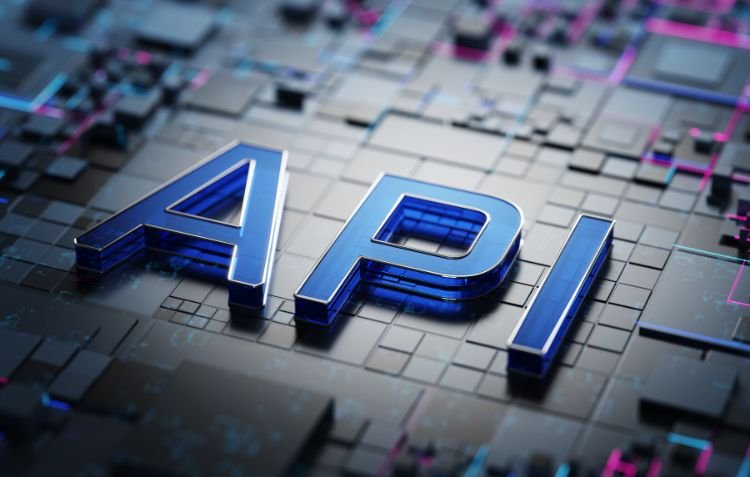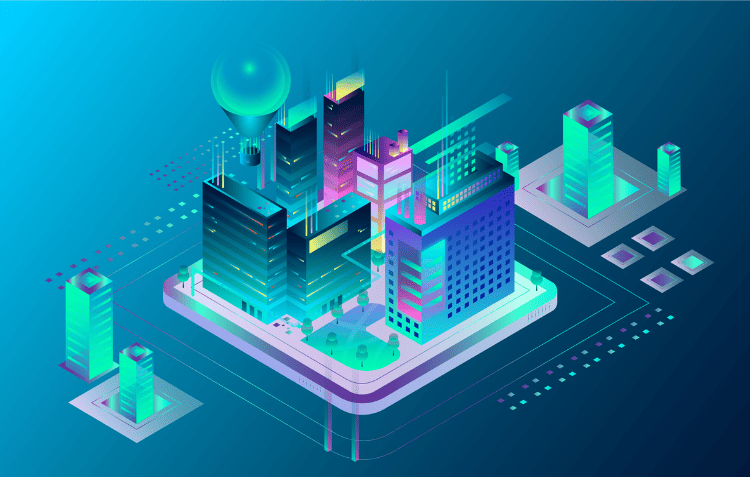How AI Driven ERP Systems Fuel Nusaker’s Growth
What if your business systems could not only process data—but actually think with it? As industries embrace digital transformation at record speed, AI driven ERP systems are quickly becoming the backbone of smarter, more agile enterprises. Unlike traditional ERP platforms that simply store and manage information, these intelligent systems analyze, learn, and guide decision-making in real time.
For Nusaker, a fast-growing technology review and recommendation platform, this shift wasn’t just about staying current—it was about accelerating performance, reducing friction, and creating meaningful value at scale. The integration of AI driven ERP systems has helped Nusaker unlock efficiencies across content management, customer personalization, and supply chain operations.
This story goes beyond tech upgrades—it’s about how strategy, automation, and data intelligence intersect to drive real business results. In the sections ahead, you’ll see how these systems fuel growth, the challenges businesses must navigate, and what makes Nusaker’s approach stand out in the AI-powered future.
You Might be Interested: Role of APIs in Network Automation
Key Takeaways
- AI ERP systems enable smarter, faster business operations.
- Nusaker uses AI to personalize content and user experience.
- Automation reduces manual tasks and boosts team productivity.
- Predictive analytics improve planning, supply, and performance.
- Scalable AI ERP suits both small and large businesses.
- Real-time data drives quicker, better decisions.
- Phased rollout and training ensured smooth AI ERP adoption.
What Are AI Driven ERP Systems and Why They Matter
ERP (Enterprise Resource Planning) systems have long served as the operational backbone for businesses—bringing together finance, HR, inventory, and more into one unified platform. But in a fast-evolving digital environment, traditional ERP isn’t enough. Enter AI driven ERP systems, a smarter generation of enterprise software that doesn’t just record data—it learns from it.
These AI-enhanced systems analyze trends, automate decisions, and improve how businesses run across departments. They help organizations move from reactive to proactive operations, unlocking real-time insights and driving growth with fewer human inputs.
Traditional ERP vs. AI Driven ERP – A Quick Comparison
Traditional ERP systems primarily focus on data centralization and process standardization. They enable departments to access shared information but require manual effort to analyze data, detect inefficiencies, or respond to trends.
AI driven ERP systems, on the other hand, integrate advanced technologies like machine learning (ML), natural language processing (NLP), and predictive analytics. These tools empower the system to forecast demand, detect anomalies, and suggest optimal actions—automatically.
| Feature | Traditional ERP | AI Driven ERP |
| Data Handling | Manual interpretation | Automated insights and pattern recognition |
| Decision Support | Human-driven | AI-assisted, real-time recommendations |
| Forecasting | Historical analysis only | Predictive analytics (future-focused) |
| Workflow Automation | Limited | Extensive (up to 80% of routine tasks automated) |
| Learning Capabilities | None | Learns and adapts from data over time |
Supporting Data: Deloitte’s AI in ERP Report outlines how AI is transforming traditional ERP systems into predictive, adaptive platforms.
How Nusaker Leverages AI-Driven ERP to Scale and Innovate
To stay competitive in the dynamic tech and e-commerce space, Nusaker knew it needed more than a standard ERP platform. By integrating an AI driven ERP systems, the company optimized nearly every part of its operations—from customer experience to inventory to internal team collaboration.
Real-Time Data Analytics for Personalized Customer Experience
Nusaker now delivers hyper-personalized recommendations thanks to AI-powered analytics. The ERP system analyzes browsing patterns, purchase history, and even time spent on specific product pages. This lets the team generate more relevant content and reviews for each visitor.
For instance, if a user frequently explores wireless headphones, the system prompts editors to feature comparison reviews or tailored product deals. NLP tools analyze user feedback, helping refine both content strategy and customer service.
Predictive Supply Chain and Inventory Optimization
The AI ERP system constantly monitors browsing activity, seasonal demand trends, and product availability to predict inventory needs. In one quarter alone, this helped Nusaker cut overstock costs by 28% while improving order fulfillment accuracy by 22%.
By knowing what and when to stock, the brand reduced delays and ensured the hottest gadgets were always ready for shipping.
Smarter Decision Making Across Teams
Company-wide dashboards display AI-curated insights to product, marketing, and content teams. These include top-performing categories, emerging trends in reviews, and underperforming SKUs. This empowers teams to act fast—like pivoting to a trending gadget or reallocating budget toward high-ROI campaigns.
Supporting Data: A case by IDC Research found that businesses leveraging AI in ERP saw 23% faster decision cycles and a 30% improvement in cross-team collaboration—results mirrored by Nusaker’s internal KPIs.
Key Benefits of AI Driven ERP Systems for Modern Enterprises

AI driven ERP systems are changing the rules of enterprise operations. They don’t just optimize—they transform how work gets done. Here’s how companies like Nusaker gain a competitive edge.
Automation of Repetitive Processes
One of the biggest wins with AI ERP is how much manual work it eliminates. From auto-generating sales reports to handling customer support queries and managing content scheduling, AI-driven automation saves valuable hours daily.
Nusaker automated over 70% of repetitive tasks—freeing up editorial and operations staff to focus on creative, high-impact work.
Predictive Analytics and Business Forecasting
With machine learning models built into the ERP, businesses can forecast user trends, product demand, and seasonal performance. This foresight helps marketing and inventory teams plan more effectively, reducing both excess and missed opportunities.
For example, by analyzing peak engagement periods for gadget reviews, Nusaker aligns its content calendar with when users are most likely to convert.
Scalability and Agility
AI ERP systems grow with your business. As Nusaker expanded into new categories like smart home tech and wearables, the system scaled without major overhauls—plugging in new workflows and adapting to different content and logistics needs.
The modular design of modern AI ERP tools means teams can launch faster without long implementation delays.
Enhanced Customer Retention and Engagement
AI tools flag early signs of churn based on user inactivity or support tickets. Nusaker responds by triggering automated retargeting campaigns or offering loyalty discounts—before customers drop off.
Supporting Data: According to a Salesforce 2023 study, AI-enhanced ERP systems improved customer retention rates by up to 26% across industries, thanks to predictive engagement models and smarter personalization.
You Might be Interested: What Is an IoT Developer Responsible For?
Implementation Strategy: How Nusaker Rolled Out AI ERP Successfully
Adopting an AI driven ERP systems isn’t just about plugging in new software. For Nusaker, it meant aligning technology with business goals and rolling it out in a phased, human-centric way.
Step-by-Step Approach
1. Identify Business Objectives:
Nusaker began by defining KPIs like reducing supply chain lag, increasing customer personalization, and lowering churn rates.
2. Choose the Right Vendor:
After market research and demos, the team selected a modular, cloud-based ERP with robust AI capabilities (see next section).
3. Pilot Department Rollout:
The platform was first tested in the Product Management department—tracking review schedules, content performance, and vendor deliveries.
4. Employee Training:
Workshops and role-based dashboards ensured that every team member—from writers to IT—could use the system effectively.
5. Scale in Phases:
Once results were visible (e.g., 20% faster editorial cycles), the ERP was gradually rolled out to Marketing, HR, and Customer Support.
Tools and Technologies Used
Nusaker’s system integrates a combination of:
- Machine Learning for trend forecasting
- NLP for review analysis and customer sentiment
- Cloud ERP Platforms such as Oracle Cloud ERP and SAP S/4HANA
- API integrations with content management, CRM, and e-commerce platforms
These tools allow for seamless data syncing and intelligent recommendations across systems.
You Might be Interested: Top AI Cloud Business Management Platforms
Challenges in Adopting AI ERP (And How Nusaker Overcame Them)
Integrating AI into ERP systems offers transformational benefits—but it also comes with its fair share of challenges. Nusaker faced several roadblocks during its transition, but strategic planning and phased execution helped navigate them successfully.
Data Security & Privacy
With large volumes of customer data flowing through AI systems, data protection becomes critical. Nusaker implemented end-to-end encryption, adopted GDPR-compliant frameworks, and ran quarterly data audits to ensure full transparency and control.
The AI ERP was configured with role-based access, ensuring only authorized team members could view sensitive information. This minimized risk and aligned operations with international privacy laws.
Employee Resistance to Change
Like many companies, Nusaker initially encountered pushback from teams unfamiliar with AI tools. Rather than enforcing a top-down mandate, the company rolled out role-specific onboarding, used internal champions to share wins, and offered incentives for early adopters.
Over time, this helped shift team mindset from resistance to active participation.
Initial Investment
AI ERP platforms can require a significant upfront cost. Nusaker justified this with a ROI-first approach, prioritizing high-impact use cases like inventory automation. Within three months, the company saw a 20% drop in manual processing hours—helping secure leadership buy-in for further expansion.
Supporting Data: According to a McKinsey report, companies using AI in ERP saw up to 30% ROI within the first year, especially when applied to automation and forecasting functions.
You Might be Interested: Will AI Become Advanced Enough to Write Good Application Essays
Real-World Case Studies and Results from Nusaker’s ERP Evolution

To measure success, Nusaker focused on real business impact across departments. These mini case studies highlight how AI-driven ERP transformed core operations.
Case 1: Smarter Content Personalization → Result: +35% Engagement
Using AI-powered user behavior analysis, the ERP system helped personalize product reviews and article suggestions. This increased click-through rates on home and category pages by 35%, while average session duration grew by 18%.
Case 2: Supply Chain Forecasting → Result: -25% Inventory Waste
By analyzing browsing data, search trends, and seasonal cycles, the ERP helped predict demand more accurately. As a result, Nusaker optimized restocking schedules and saw a 25% reduction in excess inventory, saving both warehouse costs and resources.
Case 3: HR Module Optimization → Result: +20% Editorial Team Retention
High turnover in the editorial team was causing delays and missed deadlines. The AI ERP’s HR module flagged attrition risks early, using patterns from time logs, sentiment in feedback, and work patterns. After applying targeted engagement strategies, retention improved by 20% over six months.
You Might be Interested: Essential Co-Development Software Trends You Can’t Ignore
The Road Ahead: Future of AI ERP at Nusaker and Beyond
The AI ERP journey is far from over. For Nusaker, future growth means adopting next-gen innovations that push automation, intelligence, and user personalization even further.
Predictive UI: Dashboards Customized Per Role
Soon, every team member—from editors to analysts—will have a dashboard tailored by role, history, and behavior. The goal? Less clutter, more actionable insights.
Blockchain-Integrated ERP
To ensure authenticity in sourcing and compliance in affiliate links and product promotions, Nusaker plans to integrate blockchain into its ERP system—offering traceable and transparent partner data.
Real-Time IoT Feeds for Hardware Logistics
By tapping into smart logistics tools and IoT-enabled warehousing, the ERP system will be able to auto-adjust product availability, delivery schedules, and fulfillment predictions based on live equipment status and traffic conditions.
Augmented Decision-Making
AI won’t replace human judgment—but it will enhance it. ERP dashboards will soon recommend strategies (like which content clusters to scale), while managers decide what aligns with brand goals.
You Might be Interested: 9 Ethical Concerns of AI: Thought-Provoking Insights
Final Thoughts – Why AI ERP is a Game-Changer for Nusaker
AI driven ERP systems didn’t just help Nusaker operate more efficiently—they transformed the way teams think, plan, and act. From cutting inventory waste to personalizing user experiences and reducing team burnout, every benefit came from a strategic shift to automation and insight-led decision-making.
But more than technology, what sets Nusaker apart is mindset—embracing innovation not just to stay ahead, but to lead. As the company scales, its AI ERP foundation will grow with it, enabling smarter, faster, and more human-centric operations at every level.
If there’s one takeaway from Nusaker’s journey, it’s this: you don’t need to overhaul everything overnight—but you do need to start thinking differently. When AI meets ERP with purpose, the results are not just measurable—they’re game-changing.
FAQs
What is an AI-driven ERP system?
AI driven ERP systems integrates machine learning and automation into traditional ERP platforms to deliver real-time insights, predictions, and intelligent process optimization.
How does AI improve ERP performance?
AI enhances ERP by automating workflows, forecasting trends, and enabling faster, data-driven decision-making across departments.
Is AI ERP only for large enterprises?
No, modern AI ERP platforms are scalable and cloud-based, making them accessible and affordable for small and mid-sized businesses.
How can small businesses start implementing AI ERP?
Start with a clear goal, choose a modular ERP with AI features, run a pilot in one department, and scale gradually based on results.
What makes Nusaker’s approach different?
Nusaker uses AI ERP strategically—not just for automation, but to personalize customer experiences, optimize operations, and empower teams with actionable insights.







